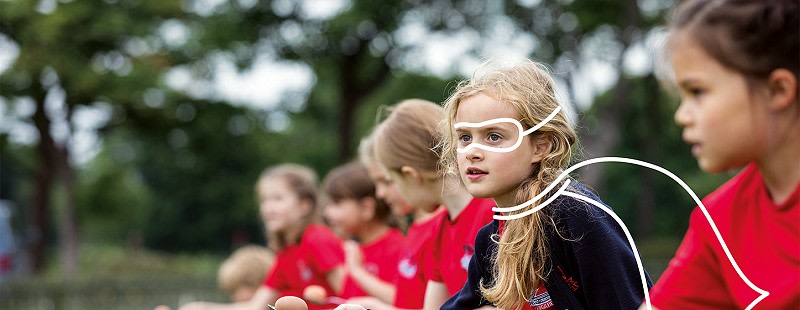- About Cargilfield
- Admissions
- Learning for the 21st Century
- Nursery
- Pre Prep
- Upper School
- Boarding
- News
- Essential Information
- Former Pupils
- Contact Us
Our purpose-built, spacious Nursery opens out onto a large outdoor garden area, providing children with constant opportunities to explore the world around them.
We are privileged to offer a wide range of natural settings for the children to immerse themselves in. These spaces include our Nursery Garden, Nature Kindergarten (woodland), Enchanted Forest (woodland), and Beach Kindergarten (Cramond Beach).
These areas ensure that the children spend ample time engaged in natural spaces, allowing them to explore all aspects of the curriculum in a more natural and open-ended setting. The children also have supervised access to the main School Library, Astroturf, and our Sports Hall, dedicated to our 3 to 8 year olds, which they use for various clubs and group activities.
IMAGE HERE
The Nursery Garden is a place for discovery, exploration and learning. The beauty of our garden is the way we can involve the children in every step of the process. The whole process of gardening is easily woven into the fabric of a Nursery day.
It is an extended sensory and learning process which starts with researching the right plants to grow, preparing the soil, digging and planting, watering, weeding and observing the plants growing and flowering. The best part is we use the produce we grow in our cooking, which the children love.
IMAGE HERE
Beach Kindergarten (Cramond Beach), is perfect for Sand play. There is no right way to use sand. It invites participation, permits children to make and test hypotheses, stretches the imagination, provides a potentially soothing sensory experience and is an excellent avenue for children to learn physical, cognitive and social skills. Because sand play is open-ended, the child determines the direction and path of his or her own play. This freedom then clears the way for the child to build developmental concepts that benefit all other areas of learning.
Pretend play helps children naturally develop and use their cognitive abilities and skills. Through using their imagination regularly, they develop creativity and learn to think for themselves. Many cognitive strategies are exhibited such as; joint planning, negotiation, problem solving and goal seeking.
Role play is key for fostering social and emotional development. Empathy is developed as children learn to sympathise and understand certain emotional situations. When children pretend to be someone else or use objects as something else, they are experimenting with different social situations as well as different emotions. They learn how to interact, cooperate and collaborate with each other in order to play.
Through dramatic play children even explore social roles and expectations and concepts of community and culture develop as children take on characters in play. It creates a safe environment for them to express themselves and overcome anxieties or fears. Pretence also has huge benefits to children’s language and communication skills. It helps them to understand the power of language and how to use these words in various scenarios. It also encourages them to listen to what is being said and respond. The children create their own storylines and adapt their play continually.
Children also build literacy skills as they ‘write’ shopping lists and ‘read’ bedtime stories to baby dolls. Symbolic competence is also of importance as it helps children make connections with objects and symbols to assist with reading and writing.
Finally, role play also supports physical development. Running, jumping, climbing, pretending to be Vikings on a quest to discover new lands or pirates fighting, pretend play is often physical and a great way to develop motor skills. Even the simple act of changing a doll’s dress, braiding hair, using coins, and dishing up pretend food aides the development of fine motor skills.
Music through play develops multi-sensory, cognitive and social-emotional skills. Making and playing instruments, singing, and dancing allow children to learn language, make connections to familiar experiences and form communities. Research has shown that children who are regularly and actively involved with music have improved memory function, attention and concentration. They are also able to control their bodies, develop their rhythm and play better with others developing higher self-esteem.
Water play delights the senses and is far more than simple fun. It is good for children’s physical, mental (cognitive) and social-emotional growth. It helps them to improve their physical dexterity and eye-hand coordination while also encouraging them to share their experiences, work as a team, and develop their social skills.
At the same time, they are engaging in scientific thought processes by questioning, investigating and observing. They look at and explore why certain objects sink in water and others float, the direction of flow, forces, as well as capacity. Children even learn mathematical concepts such as empty/full, before/after, shallow/deep and heavy/light in a hands-on way.

Join us on Friday 2 May between 9am and 12pm to discover what makes Cargilfield truly special.